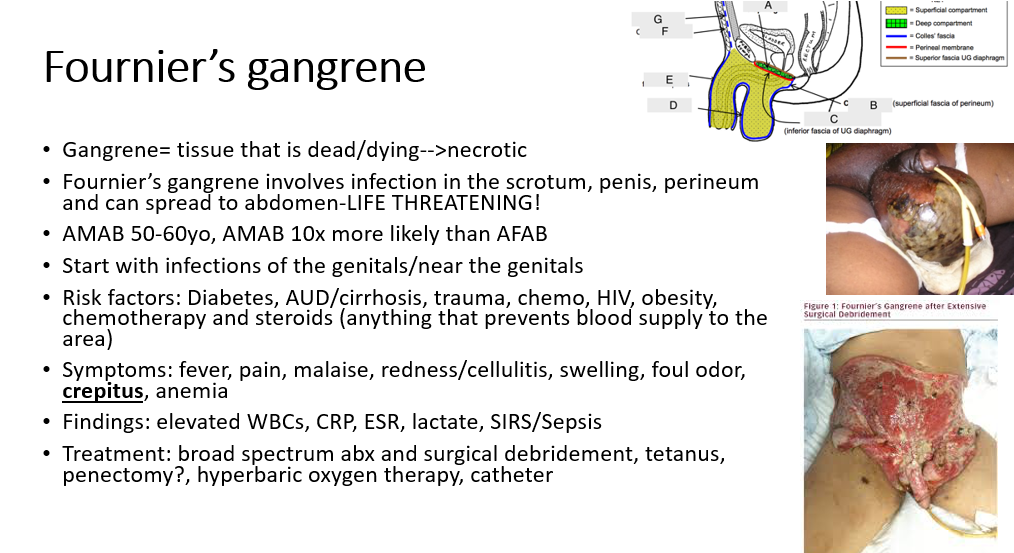EM 4 - Derm SSTIs
1/14
There's no tags or description
Looks like no tags are added yet.
Name | Mastery | Learn | Test | Matching | Spaced | Call with Kai |
|---|
No analytics yet
Send a link to your students to track their progress
15 Terms
which of the following burns extend into the subcutaneous tissue, but not into fascia or muscle?
a - superficial partial thickness
b - deep partial thickness
c - full thickness
d - deeper injury/fourth degree
c - full thickness (sensation only deep pressure)
True or False - Full thickness burns generally require surgical treatment to heal
True
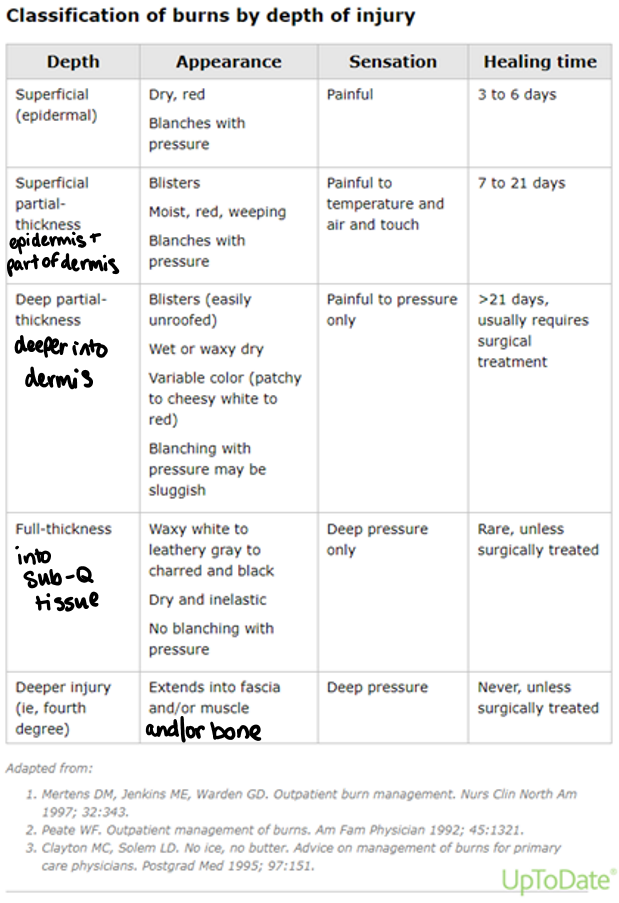
True or False - deep partial thickness burns usually require surgical treatment
True
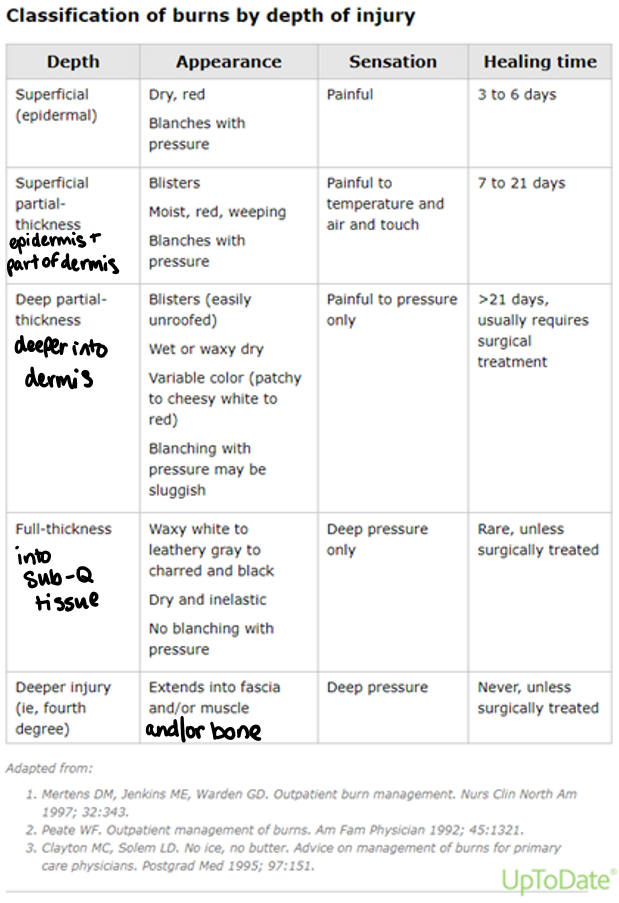
What is a topical agent that can be used to prevent infection in burns?
Bacitracin (Mupirocin) or Silvadene (avoid putting on face)
Which of the following groups of medications includes a drug commonly associated with DRESS syndrome?
A) Ibuprofen, acetaminophen, aspirin
B) Phenytoin, carbamazepine, allopurinol
C) Amoxicillin, azithromycin, ceftriaxone
D) Metformin, atorvastatin, lisinopril
✅ Correct Answer: B) Phenytoin, carbamazepine, allopurinol
also… sulfa drugs, vancomycin, antiepileptics, minocycline, dapsone
If >30% of body is affected (in SJS/TEN continuum), is it classified as SJS or TEN?
TEN >30% BSA (if 10-30, SJS/TEN; if <10%, SJS)
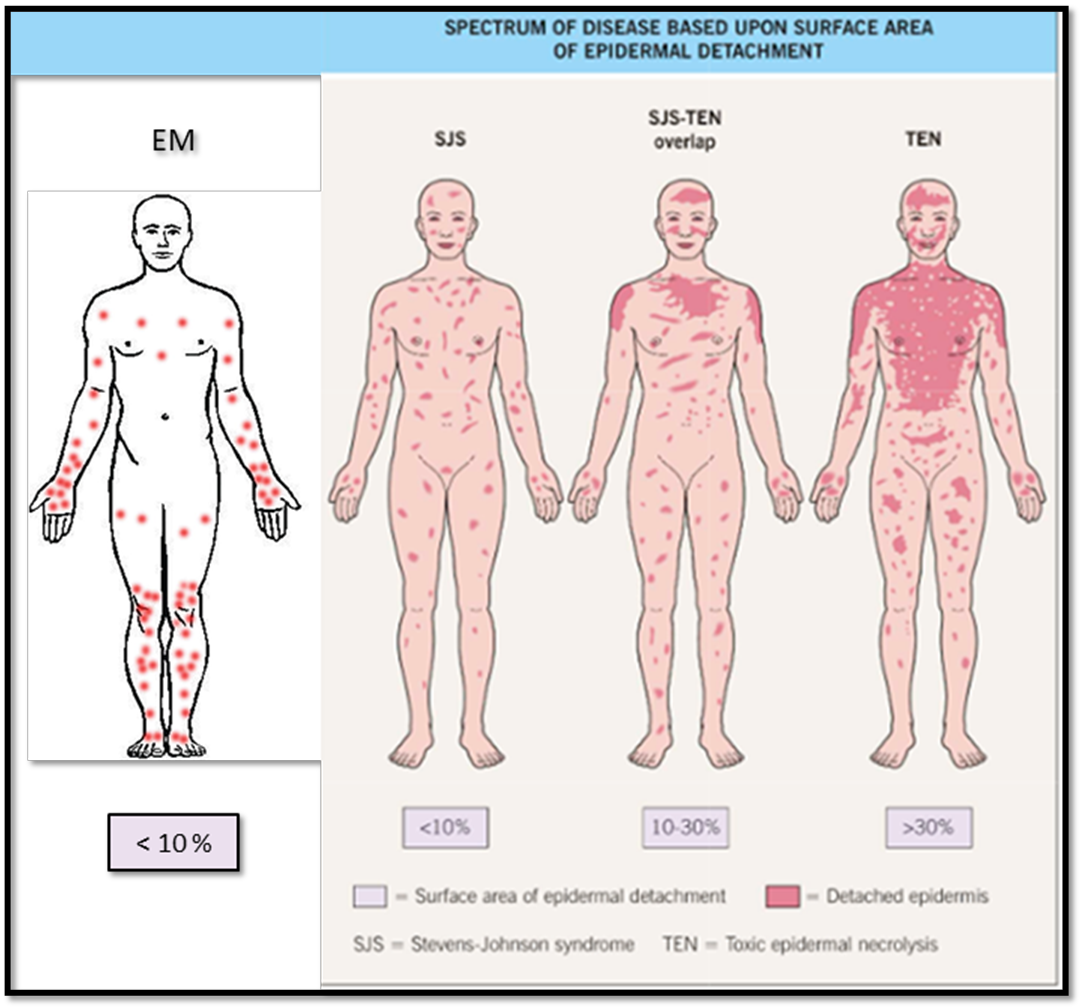
Is a slightly raised target lesion with a red dusky center, white ring, and red base with sharp margins is more likely to be:
Erythema Multiforme
OR
SJS
OR
TEN
erythema multiforme
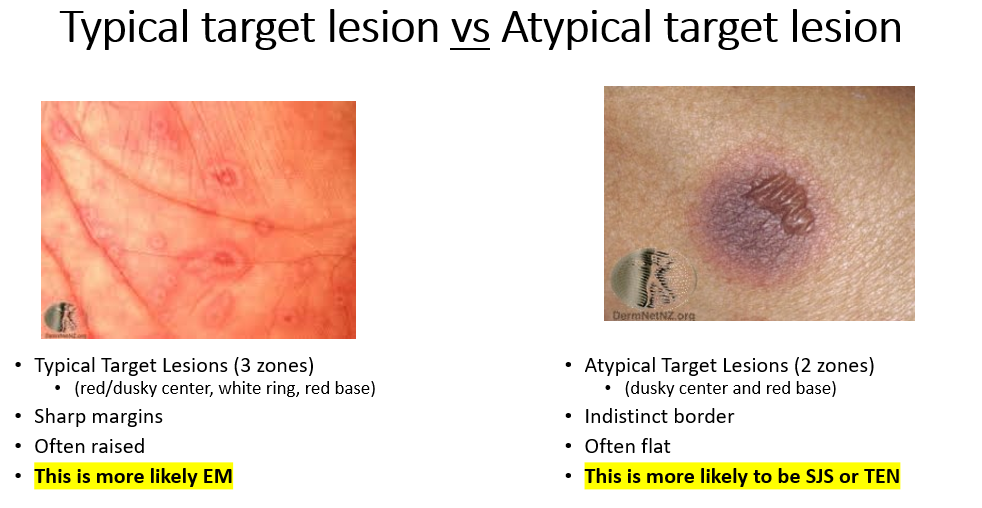
True or False - Erythema Multiforme is often self-resolving
True
Pemphigus Vulgaris affects younger patients and often involves mucosa. The blisters are superficial, flaccid, and rupture easily. Nikolsky’s sign is positive.
Bullous Pemphigoid tends to affect the elderly, and rarely involves the mucosa. Blisters are subepidermal, tense, and firm; Nikolsky’s sign is negative.
Which has a higher mortality rate- pemphigus vulgaris or bullous pemphigoid?
Pemphigous Vulgaris has a higher mortality rate without treatment; prognosis for Bullous Pemphigoid is actually good- most patients do well.

True or False - topical steroids, systemic steroids, and doxycyline are the treatments for bullous pemphigoid
True
True or False - systemic glucocorticoids and rituximab are the mainstays of therapy for Bullous Pemphigoid
False - while systemic corticosteroids are often included, rituximab is not. This is actually the mainstay treatment for pemphigus vulgaris, which requires more rigorous treatment than bullous pemphigoid.
What are two most common bacterial culprits of TSS (scalded skin syndrome in kiddos)
staph a and group a strep
A 54-year-old man with a history of type 2 diabetes presents to the emergency department with a painful, swollen area on his left lower leg. He reports progressive redness and swelling over the past 3 days. On exam, there is a poorly demarcated, warm, erythematous area extending across the shin. No fluctuance is appreciated. Vital signs reveal a low-grade fever.
Which of the following best describes this patient's likely diagnosis?
A) Skin abscess
B) Erysipelas
C) Cellulitis
D) Necrotizing fasciitis
C) Cellulitis — deeper dermal and subcutaneous tissue infection with ill-defined borders, often caused by Streptococcus or Staphylococcus species
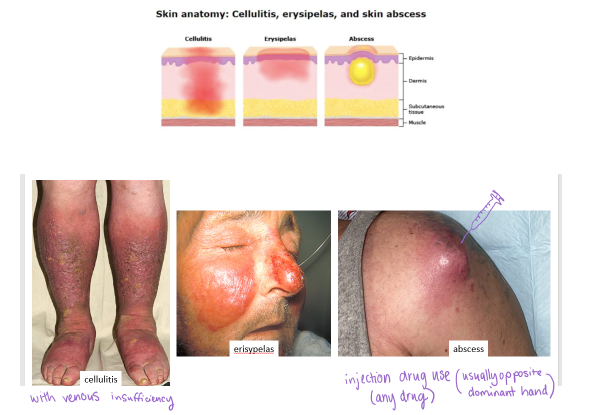
All of the following findings support a diagnosis of necrotizing soft tissue infection (NSTI) EXCEPT:
A) Rapid progression of erythema, swelling, and pain
B) Severe pain out of proportion to physical findings
C) Presence of gas in the soft tissues on imaging
D) Hypotension and signs of systemic toxicity
E) Glucose <180 mg/dL
F) Hgb <11 g/dL
H) Sodium 140 mg/dL
H) Sodium 140 mg/dL
this isn’t correct (140 is normal sodium), as hyponatremia is common with NSSTI
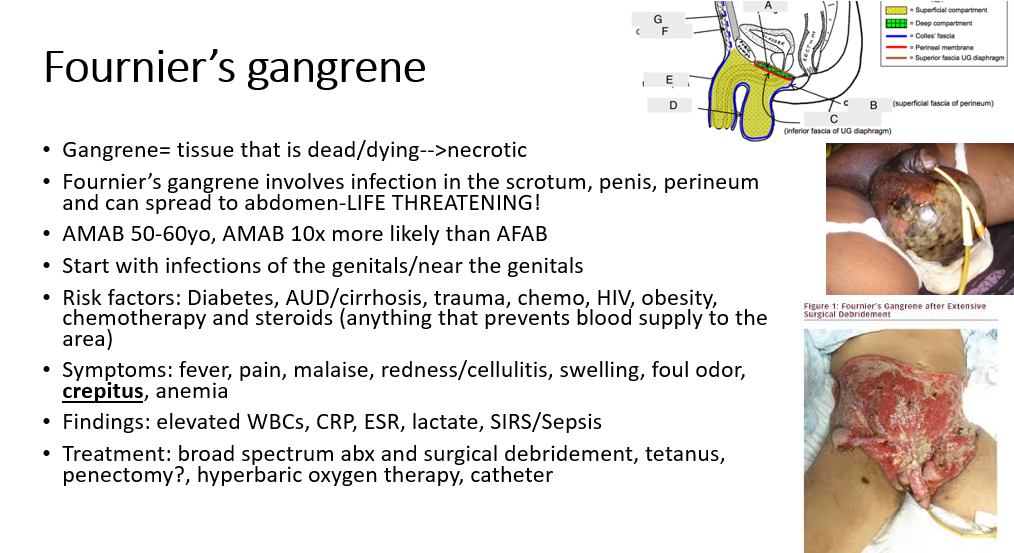
true or false - broad spectrum abx, surgical debridement, hyperbaric oxygen therapy, and catheterization are treatments for Fournier’s gangrene
true!
Hyperbaric oxygen therapy helps in Fournier's gangrene by improving oxygen delivery, inhibiting the growth of anaerobic bacteria, enhancing the immune response, and promoting wound healing. This can significantly increase survival rates and reduce morbidity when used in conjunction with surgical debridement and appropriate antibiotics.
